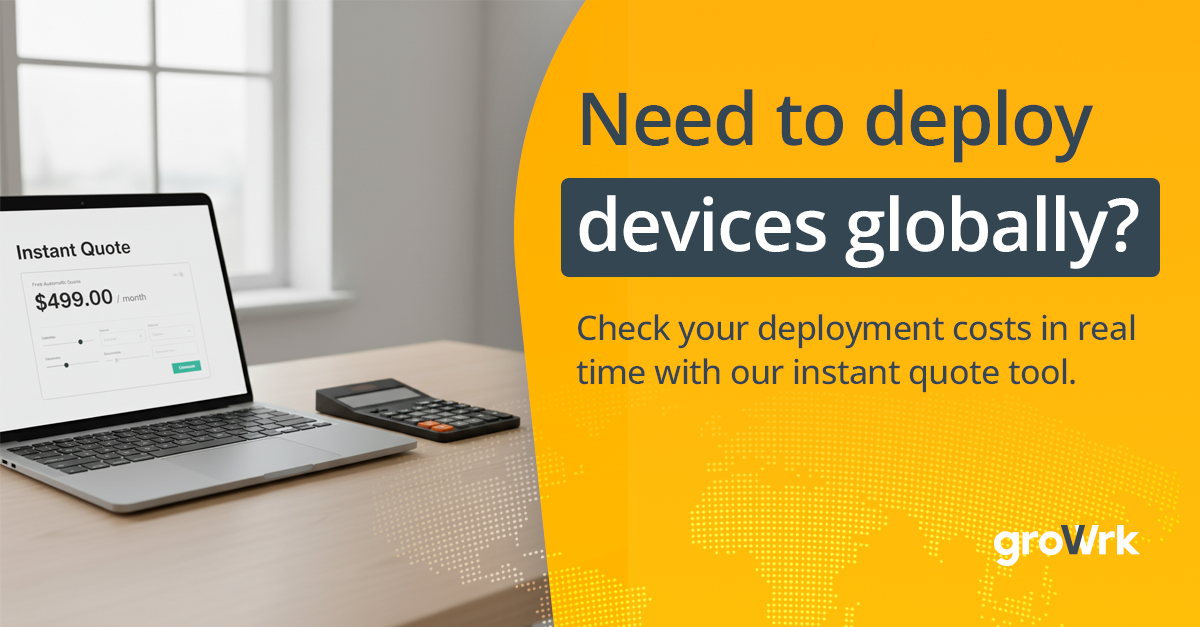How to send IT equipment to Brazil
Looking to send Laptops or other IT equipment to distributed teams in Brazil? GroWrk simplifies IT asset management, shipping, and compliance across borders. Learn how to seamlessly manage logistics, customs, and IT outsourcing for your remote team.
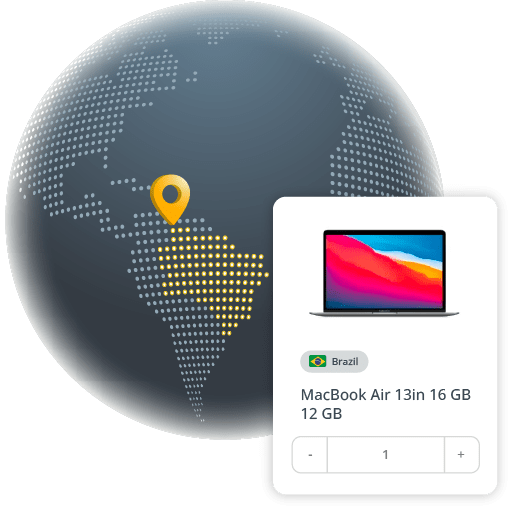
At a glance
Before shipping IT equipment or outsourcing IT services to Brazil, there are a few important factors to consider. Brazil is a key player in the global IT landscape, with a rapidly growing tech sector and increasing digital transformation. Understanding the IT ecosystem is essential for businesses planning to enter the Brazilian market.
|
CURRENCY Brazilian Real (BRL) |
OFFICIAL LANGUAGE Portuguese |
TIME ZONE UTC−02:00 to UTC−05:00 |
|
CUSTOMS DUTY ON ELECTRONICS Import tariffs on Information and Communication Technology (ICT) goods in Brazil vary, with higher rates on consumer electronic equipment and lower rates on electronic components. |
SHIPPING LEAD TIME 7-14 days (depending on location and shipping method) |
IT OUTSOURCING MARKET $8.67 billion Valued at USD 8.67 billion in 2023, projected to reach USD 16.9 billion by 2032, with a CAGR of 7.20%. |
Overview of IT operations in Brazil

Digital transformation: Brazil is investing heavily in cloud computing, AI, and IoT, with its digital transformation market projected to grow at a 9.67% CAGR, reaching $38.67 billion by 2029.
Government initiatives: Programs such as the $4 billion AI investment plan aim to enhance Brazil’s tech capabilities, driving innovation and reducing dependency on foreign technologies.
Skilled workforce: Brazil has a growing pool of IT professionals, with major tech hubs in São Paulo, Campinas, and São José dos Campos.
IT market growth: The Brazilian ICT market is expected to grow from $96.66 billion in 2023 to $212.95 billion by 2028, driven by digital transformation and government support.
Geographical advantage: As the largest economy in Latin America, Brazil serves as a strategic IT hub, offering access to regional markets and a vast consumer base.
Shipping IT equipment to Brazil: What you need to know
| Customs regulations |
Importing IT equipment such as laptops, monitors, and peripherals into Brazil requires adherence to specific customs regulations. Importers must register with the Foreign Trade Secretariat (SECEX) via the Integrated System for Foreign Trade (Siscomex). Proper declaration and documentation are essential for smooth customs clearance. |
| Duties and taxes |
Imported goods are subject to several taxes and fees, typically paid during the customs clearance process. The primary taxes include:
|
| Required documentation |
|
| Import restrictions |
High-tech items may require special permits or are subject to import restrictions. It's crucial to verify whether the specific IT equipment intended for importation is subject to any prohibitions or requires additional authorizations. Certain technology-related products, including laptops, may be subject to specific import restrictions in Brazil. These can include compliance with local standards, software licenses, encryption regulations, and technology deemed sensitive for national security or compliance reasons. |
| New vs. Used equipment |
| The Brazilian government generally prohibits the importation of used consumer goods. Importing used laptops may be challenging and could require special permits or certifications. |
| Data privacy laws |
| Brazil enforces strict data privacy regulations under the General Personal Data Protection Law (LGPD), which aligns closely with the EU’s GDPR. This law applies to data processing activities and must be considered when outsourcing IT services or shipping IT equipment containing personal data. |
| Penalties or fines for non-compliance |
Failure to comply with Brazil’s regulations on IT equipment disposal can lead to significant penalties, both for environmental violations and data protection breaches.
To avoid penalties, businesses should:
|
Checklist for sending laptops to Brazil
When shipping laptops to Brazil, it’s important to follow a few best practices to ensure the process goes smoothly, and your equipment arrives safely and on time. Here are some helpful shipping tips:
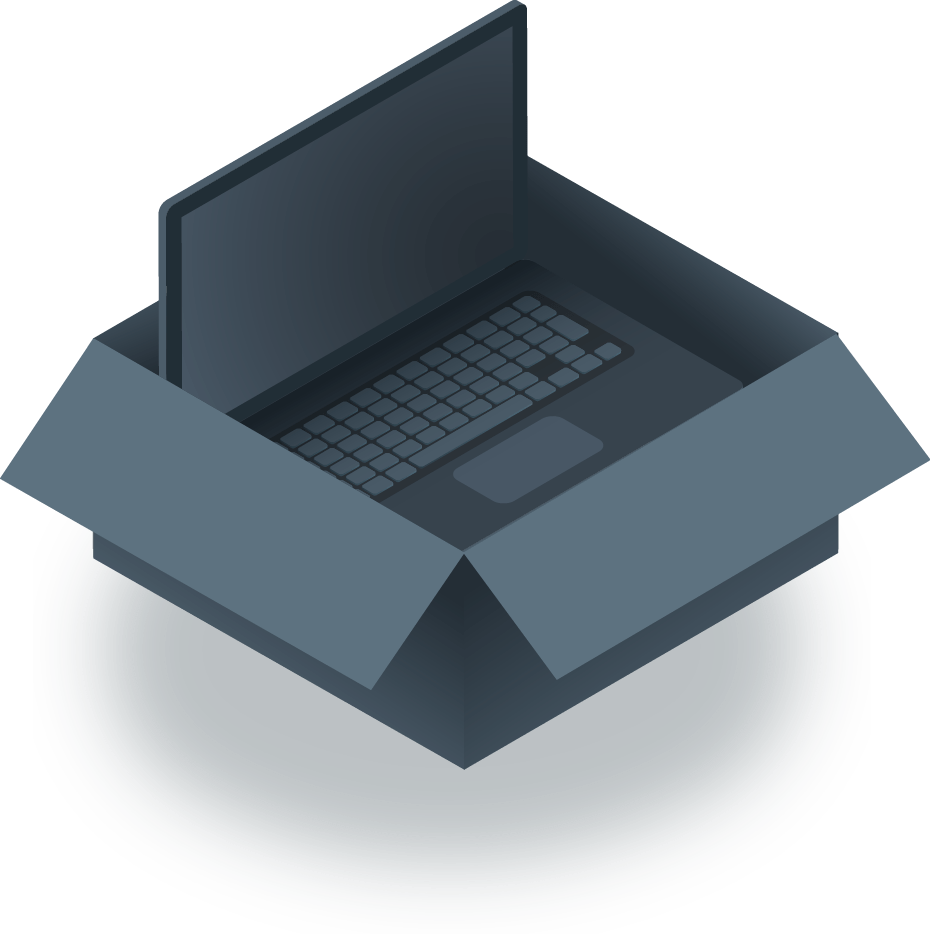
Select trusted couriers: Choose reliable couriers such as GroWrk, DHL, UPS, FedEx, or Correios (Brazil’s national postal service) for international shipping. These carriers offer tracking services and have experience handling Brazilian customs procedures.
Check service levels: Select the appropriate shipping option based on urgency. Express shipping (3-6 days) for high-priority deliveries. Standard shipping (7-14 days) for cost-effective options.
Use high-quality packaging: Secure laptops with sturdy, padded boxes and protective materials like bubble wrap, foam inserts, or air cushions to prevent damage during transit.
Disassemble where possible: If shipping accessories like chargers, docking stations, or monitors, package them separately to prevent damage. Remove detachable components if applicable.
Label clearly: Ensure the recipient’s name, address, and contact details are correctly labeled. Mark the package as "fragile" to encourage careful handling.
Accurate product descriptions: On the commercial invoice, provide a detailed and accurate description of the laptop, including its brand, model, and serial number. Inaccurate descriptions may cause customs delays.
Value declaration: Declare the correct value of the laptop to avoid under- or over-declaring, which could lead to customs inspections or fines. The declared value determines any applicable duties and taxes.
Customs declarations: All international shipments require customs clearance. Include: Brazilian Customs Declaration (Declaração de Importação - DI or DSI for simplified imports), commercial invoice, and packing list
Proof of origin: If applicable, include a certificate of origin to determine eligibility for preferential trade agreements, such as the Mercosur Agreement, which may reduce duties on imports from member countries.
Understand import duties & taxes: Laptops are subject to 0% import duty under Brazil’s tariff rules but are taxed under the ICMS (state tax) and IPI (industrialized products tax), varying by state. Standard VAT (ICMS) rates range from 17% to 19%, depending on the destination state. The total import tax burden can exceed 60% when including federal and state taxes.
Pre-pay duties and taxes: Some couriers allow for pre-paid duties and taxes to simplify customs clearance and prevent the recipient from facing unexpected charges upon arrival.
Protect against loss or damage: Consider purchasing shipping insurance for high-value laptops to protect against loss, theft, or damage during transit.
Compliance with Brazilian regulations: Ensure compliance with ANATEL (Agência Nacional de Telecomunicações) certification if the laptop has wireless communication capabilities. Devices without approval may be held at customs.
Use tracking tools: Major couriers provide real-time tracking—monitor shipments closely to anticipate customs clearance updates and delivery progress.
Stay in touch with the recipient: Notify the recipient about the expected delivery timeline, tracking updates, and any customs-related requirements to avoid delays.
Expect weather and seasonal delays: Heavy rains, flooding, and high shipping demand during peak seasons (e.g., Christmas, Black Friday, Carnival) may cause delivery delays. Plan shipments accordingly.
Brazilian domestic delivery options: For final delivery, consider working with Correios, Jadlog, Total Express, or Sequoia Logística for efficient last-mile distribution.
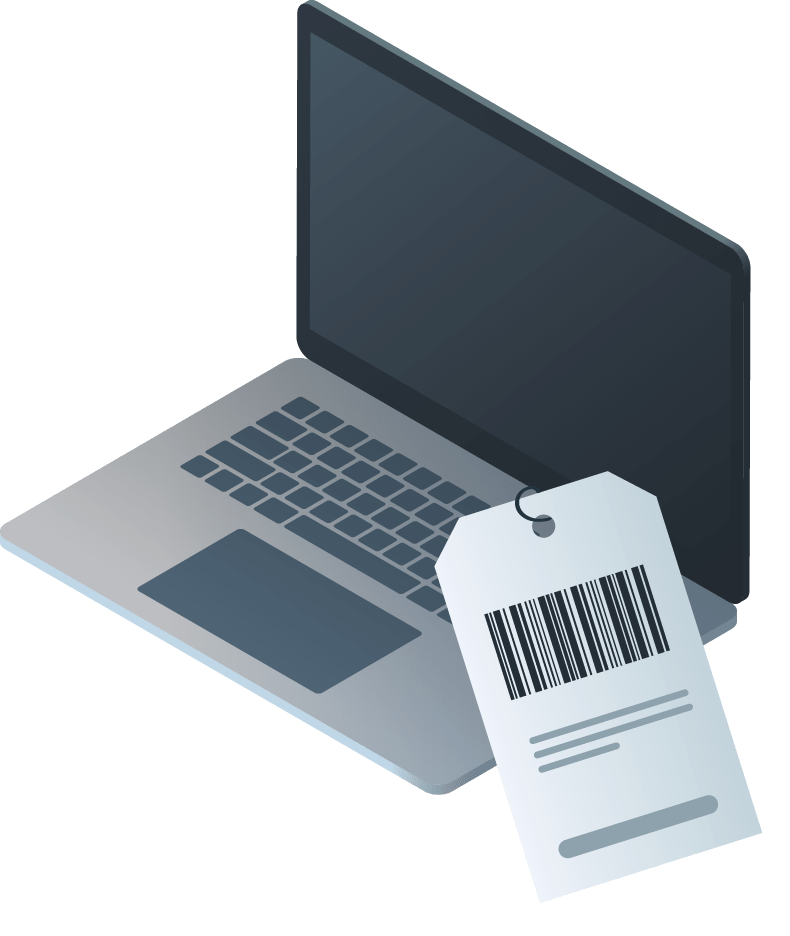
Average cost of IT Equipment in Brazil
Laptops (Business Grade):
- Mid-range: $700 - $1,500
- High-end: $1,500 - $3,000+
High-end models such as Apple MacBook Pro, Dell XPS, and Lenovo ThinkPad are priced on the higher end.
Monitors (Business Grade):
- Standard: $150 - $300
- Ultrawide/4K: $400 - $1,000
Monitors from trusted brands like Dell, Samsung, and LG typically range within these prices, with 4K or ultrawide models costing more.
Desktops (Business Grade):
- Standard Desktop PC: $500 - $1,500
- Workstation Desktop (for high-performance tasks): $1,500 - $3,500+
Prices depend on the brand and specifications, with options from HP, Lenovo, and Apple among the most common.
Printers (Laser):
- Standard Office Printers: $150 - $400
- High-Volume Printers: $600 - $2,000+
Leading brands such as HP, Canon, and Brother offer a wide range of models for office environments.
Public holidays & IT work hours to plan your shipment
Key public holidays in Brazil:
- New Year's Day (Ano Novo): January 1
- Tiradentes' Day (Dia de Tiradentes): April 21
- Labour Day (Dia do Trabalho): May 1
- Independence Day (Dia da Independência): September 7
- Our Lady of Aparecida (Nossa Senhora Aparecida): October 12
- All Souls' Day (Dia de Finados): November 2
- Republic Proclamation Day (Proclamação da República): November 15
- Christmas Day (Natal): December 25
Additionally, Brazil celebrates Carnival, a major festival that, while not an official public holiday, significantly affects business activities. Carnival typically occurs in February or March, with festivities lasting several days, during which many businesses close or operate on reduced hours.
It's important to note that public holidays can vary by state and municipality, with some regions observing additional local holidays. For example, São Paulo celebrates its founding on January 25, while Rio de Janeiro observes Saint George's Day on April 23.
Typical work hours for IT professionals
- In Brazil, standard working hours are typically from 8:00 or 9:00 a.m. to 5:00 or 6:00 p.m., with a one-hour unpaid break for lunch. The typical workweek ranges from 40 to 44 hours, usually spread over five days, Monday through Friday. Some employees may work an additional four hours on Saturdays.
- For IT professionals, working hours may vary depending on company policies and project requirements. Many IT companies offer flexible schedules, including options for remote work, to accommodate global collaboration and project deadlines. Being mindful of these public holidays and working hours is crucial for effective planning and coordination of deliveries and work schedules in Brazil.
What to consider when retrieving IT equipment from employees in Brazil
| Local delivery and logistics services |
|
| Inventory management |
|
| Logistics challenges for remote locations |
Brazil's vast geography presents significant logistical challenges, especially in remote or rural areas:
These factors may increase the time and cost required to retrieve IT equipment from employees in isolated areas. To mitigate these challenges, businesses should plan for extended delivery times and consider partnering with specialized logistics providers experienced in navigating Brazil's diverse terrain like Growrk. |
| Equipment agreement with employees |
Implementing a comprehensive equipment agreement is essential to ensure the proper return of IT assets. This agreement should:
Utilizing an equipment agreement helps protect company assets and ensures employees understand their responsibilities. Templates for such agreements are available from resources like the Society for Human Resource Management (SHRM). |
How to dispose of IT equipment in Brazil
E-waste recycling:
IT equipment such as laptops, monitors, and other electronics must be disposed of through certified e-waste recycling programs. Consult with licensed e-waste disposal companies, such as Reurbi, which provides safe recycling solutions for office electronic waste, ensuring proper disposal according to Brazilian environmental laws.
Data destruction
Before disposing of or repurposing any IT equipment, ensure that all sensitive data is completely erased to comply with data protection laws, such as Brazil's General Personal Data Protection Law (LGPD). Data destruction should be performed using certified methods, such as data wiping software or physical destruction of hard drives, to prevent unauthorized access to confidential information.
Repurposing or donating
If the equipment is still functional, consider repurposing it internally or donating it to educational institutions, non-profits, or other organizations. This approach not only extends the useful life of the equipment but also supports community initiatives and reduces environmental impact.
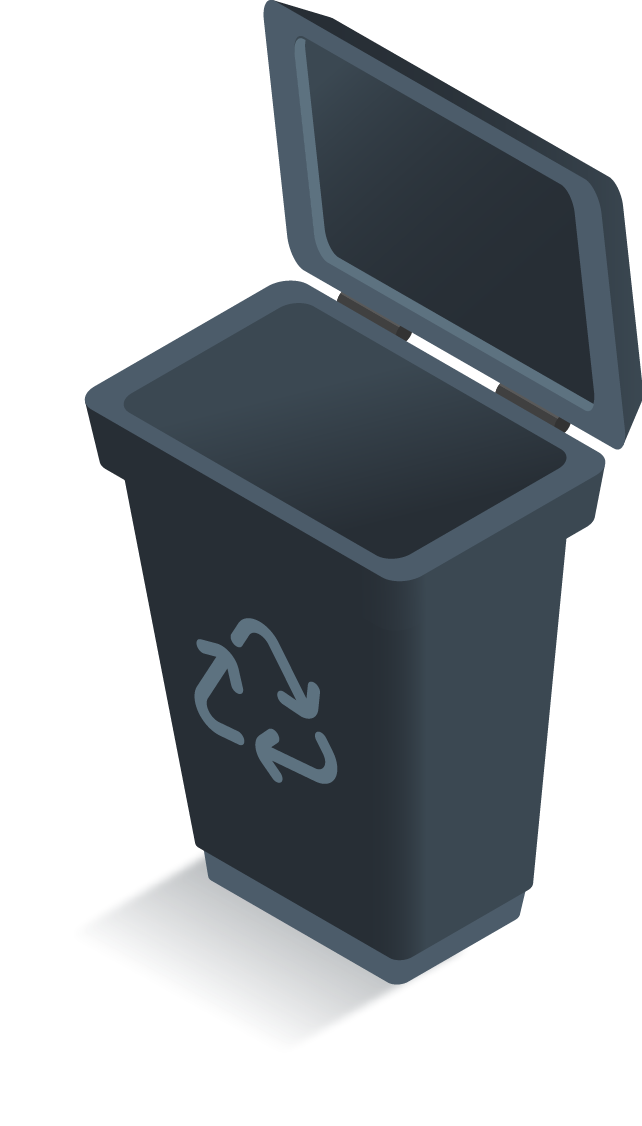
Local IT Outsourcing Solutions in Brazil
You can streamline your IT logistics and asset management with GroWrk’s comprehensive global solution. Whether it’s shipping equipment or managing IT assets across multiple regions, GroWrk helps you stay compliant and efficient, every step of the way. Here’s why GroWrk is the ideal partner for managing your IT assets in Brazil:

| 1. Wide global coverage |
With a presence in over 150 countries, including Brazil, GroWrk ensures seamless deployment of IT equipment to your distributed teams. No matter where your employees are located, GroWrk has you covered. |
| 2. End-to-end asset management |
GroWrk simplifies the entire lifecycle of IT equipment—procurement, deployment, and management. This enhances operational efficiency, allowing businesses to focus on growth without worrying about logistics. |
| 3. Intuitive platform for easy deployment |
GroWrk’s intuitive interface enables businesses to deploy devices with just a few clicks. The platform minimizes logistical hassles, reduces costs, and prevents costly shipment mistakes, making it an indispensable tool for IT operations. |
| 4. Smooth delivery and equipment retrieval |
GroWrk manages the delivery of laptops and IT equipment to employees worldwide and ensures smooth retrieval from outgoing team members, saving time and resources. |
| 5. Compliance with Brazilian import regulations |
GroWrk ensures that all shipments meet Brazil’s stringent import regulations to avoid delays and fines. |
| 6. Efficient repairs and maintenance |
From routine maintenance to complex repairs, GroWrk handles it all, ensuring your team’s devices are always in optimal condition without adding to your workload. |
| 7. 24/7 Support for peace of mind |
GroWrk provides 24/7 customer support, guiding you through every stage of IT asset management and overseas laptop shipment. With end-to-end assistance, you can enjoy a smooth and efficient experience. |
Procure, configure, and deploy your IT devices from one platform


